Gaiker: 10 years of productive trajectory
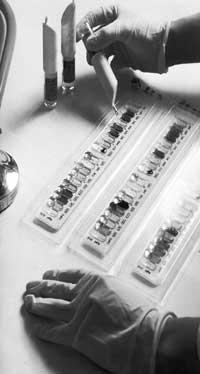
Gaiker's goal is to be close to the company and the research center. Be a leader in research without losing the market perspective. Gaiker was born in July 1985, a goal that guides the steps that are taking place today.
As we said, Gaiker has just turned 10. In the field of new materials and especially plastics, the need for this was detected and from there came the idea of creating a new company. Marian Ibarrondo, head of Gaiker’s Marketing Department, told us that “the main lack of SMEs in this field was the lack of technology transfer.
When we decided to create Gaiker, our intention was to be a R&D department for many companies, that is, to help them resolve the concerns that these companies could have about the use of new technologies and be a reference point for all. This has led to a double obligation: on the one hand, we have had to dress up in new technologies and on the other, we have had to adapt to new market trends”. The current company Gaiker, founded in 1985, brings together the company Biotek, which joined in 1992. Marian Ibarrondo explained that “Biotek has worked in the field of biotechnology since its foundation in 1988.
The importance of this field in Basque companies is increasing. Given the possibility of carrying out these two activities together, research on new materials and biotechnology, we decided to unify both companies. The market demands multipurpose equipment and services and we believe that the union of both companies could provide an adequate response.”
Collaboration key
He is currently a member of the Gaiker EITE Group. Participation in the EITE, which groups Research Centres working in different areas, has provided many advantages. “We are collaborating with research centers, allowing us to better understand the market and round off technology transfer,” said Ibarrondo. Today Basque companies know very clearly that to be competitive in the future it is necessary to optimize the production process and the product itself.
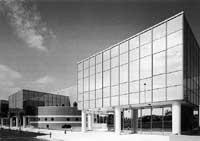
But when Gaiker was born, the head of the marketing department told us that distrust of researchers was greater. “Many companies had to reject progress to leave their R&D services in the hands of a young team like ours. We had to prove that Gaiker is a young but professional company. If today our space is consolidated, it is because we have done a great job. In general, it can be said that the coexistence of these research centers has served to strengthen trust in researchers.”
The environmental challenge
Most of the projects currently underway at Gaiker will soon have practical use of the Basque industry. Gaiker has announced the work carried out in the area of environment. Among other things, Gaiker has been researching water and soil pollution for many years. Txomin Bargos, head of the Department of Environment and Recycling, told us that “this area will have more and more importance in our environment. Two main reasons can be cited to explain the expansion of the environmental industry. On the one hand, the problem of pollution in the Basque Country has deep roots and that we now have to make prevention policies that were not promoted in the most prosperous years of the industry. On the other hand, the Basque Country is currently working in the previous group in many areas, as in the case of contaminated soils”.
Gaiker's most interesting contribution in this field is the characterization technology of contaminants present in the soil. Bargos explained that “the study of soil pollution is a longer and more difficult process than people thought. In the soil you can find a wide variety of pollutants, produced by different productive processes and indifferent discharges.
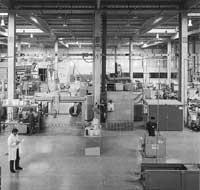
These residues can remain on the ground for many years, compromising their stability and use. Until we start working on contaminated soil, that is, until the risk manifests, we do not realize it. The identification, analysis and characterization of contaminants present in the soil is the first step to address the problem.” The technology needed for this does not arise from day to day, and is in it today. “Our job is to find a solution to every problem,” said Txomin Bargos.
The characterization of soil pollutants has been based on the seven waste flows used by the Dutch Environment Agency. Depending on this, the substances detected in samples taken in the soil are classified. After their analysis, they determine the level of risk. The risk level A is that of reduced presence of this substance. Risk level B is the limit between sustainable and dangerous situations. Finally, when risk level C occurs, Gaiker technicians insist on the need to take immediate action as risk is imminent for humans or the ecosystem.
Once the contaminants are identified, the soil is rehabilitated, that is, to facilitate their use. The new Bioreparation technique being researched at Gaiker is the pioneer at the moment in reuse techniques. As the head of the Department of Environment and Recycling told us, “biorepair research is to address future paths. We can predict that within a few years it will be a mainly used technique.” The biorepair technique is based on microorganisms, that is, bacteria used for the elimination of organic pollutants.

These microorganisms that decontamination can be bacterial compounds or bacteria of the local flora. In both cases, preset conditions of moisture, feed and ventilation will be applied to them. Gaiker technicians have worked for 3 years on this new biorepair technique, and the result of this effort are the different projects they currently have in their hands. Among others, the work of many research centers and different European universities is being coordinated from the Zamudio Park.
The plastic problem, more serious than expected
In several municipalities of the Sasieta de Gipuzkoa Commonwealth, special deposits for collecting plastics are already on the street. Although many citizens do not know it, the drawers or bottles that we put there are used to improve plastic recycling processes. That is, these plastics are the raw material of research being produced at Gaiker. The aim of the study is to reuse this residue. According to Marian Ibarrondo "like today we recycle paper or glass, plastic also offers the possibility to use it again and again.
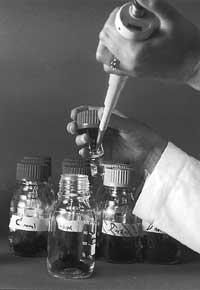
However, to get to this situation we need to know the right technologies and adapt them to our needs." Plastic can be a more serious problem than we think. Txomin Bargos told us that 70% of the materials that accumulate in landfills are plastics: "Household waste is collected in landfills and, although unconscious, we use plastic for anything and without measures."
Although people don't think so, selective plastic collection is now the key to developing recycling systems. Besides being abundant, not all plastics are the same, so in all cases the same recycling treatment cannot be used. Plastics technology is well known by Gaiker. They have spent many years researching recycling technologies. "We are researching separation systems when collecting different types of Gaiker plastics," said Marian Ibarrondo. "Collection and separation processes must be adapted to the needs of the company and not the other way around. When it comes to acquiring the technological level necessary for this, we consider that plastic recycling will be faster and cheaper than it is today."
Responsibility of all of us
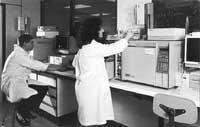
The environment is an economic activity with great future. The two interlocutors who informed us about Gaiker did not hesitate to explain it. “The environmental industry will develop under social demand,” said Txomin Bargos. “We have to close the consumption circle. We all make a great effort to drive recycling and provide adequate infrastructure. If the products resulting from recycling are not consumed, we are on a useless path.” Marian Ibarrondo is of the same opinion.
On the contrary, he does not believe that the challenge of recycling is only in the hands of the consumer. “Recycled products must be quality and competitive in the market,” said the Head of Marketing. In addition, Bargos and Ibarrondo agreed on the importance of recycling. “Our resources are limited. Before throwing the trash bin, we must be aware of its importance. Among us we have said many times that at Gaiker’s Recycling Department we are driving the garbage culture.”





